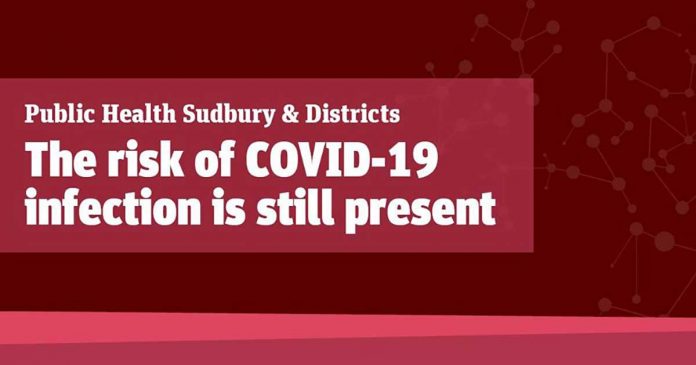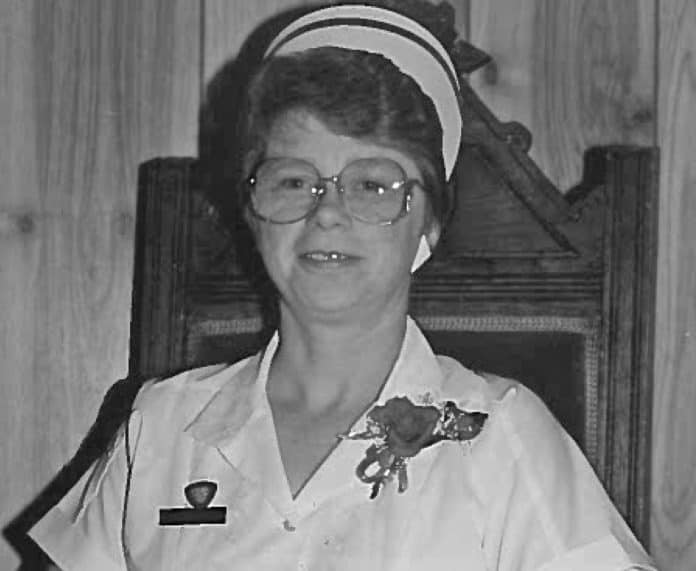NORTHERN ONTARIO – Members of Ontario Health Coalition (OHC) staged a press conference last Wednesday, February 10 to discuss the oft-mentioned concept of a ‘Northern Bubble,’ excluding people from southern Ontario and out-of-province from travelling to the North except for essential reasons, at which its members stressed the importance of staying close to home but acknowledged the difficulties in enforcing travel checkpoints.
“Eileen de Villa (Toronto’s medical officer of health) very rightfully and sensibly warned people that we are transitioning from one pandemic into another pandemic, and the pandemic of the new variant could be quite different and much faster moving than even what we’ve experienced to date,” said OHC executive director Natalie Mehra at the virtual press conference.
The newfound concern is emerging as Canada sees rising cases of COVID-19 variants of concern (VOCs), or mutations of the virus with small differences that affect how they spread or how badly they impact humans.
Some of the most prominent VOCs appear to be much more contagious and also cause more severe illness. This means they spread faster and can more quickly devastate a health system if left unchecked. The small changes have also had mixed impacts on the effectiveness of vaccines, depending on the variant and the vaccine manufacturer.
One of the variants, known as B.1.1.7., has already begun to afflict parts of the city of North Bay after devastating a nursing home in Barrie last month.
Northern Ontario has been able to control COVID-19 much more effectively than southern Ontario, especially during the first wave, but the second wave was worse. The addition of virus VOCs poses a significant threat to the North especially.
“We’re calling on the public to really understand what’s happening, what the threats are, and to curtail unnecessary travel and try to protect Northern Ontario the way it was protected in the first wave,” Ms. Mehra said.
Northern Bubble a divisive issue
Talk of a Northern Bubble has emerged periodically over the past year since the pandemic began and city council in Sudbury has approached Premier Doug Ford about the idea.
It’s far from a slam-dunk, however. The concept of a Northern Bubble, one that physically restricts travel between the North and the south, remains extremely divisive.
To this end, OHC is advocating for increased efforts on the part of every citizen to stay vigilant and remain at home as much as possible, so that enforcing a physical travel restriction (which would be difficult in itself) is not necessary.
“The message given to Ontarians by (loosening restrictions) is confusing for people, so we wanted to counter with a very clear public interest message. Just because the province announced it was opening does not mean that people should travel freely,” Ms. Mehra said. “People can make choices now that will result in either protecting their communities or not.”
She cited the high death rates among residents and staff of long-term care (LTC) facilities as an indication of how dire the situation has been in recent months especially.
“While LTC facilities are responsible for improving infection control measures in homes, the fact is that the high community spread of COVID-19 has resulted in more outbreaks and more potential for outbreaks to get out of control,” Ms. Mehra said.
She suggested that businesses in the North could stay closed to customers ‘from away’ and make it less attractive for people to come up as travel increases with the coming warmer weather, though did not get into specifics about how businesses might exclude travelling customers.
OHC pushes for
personal accountability
Algoma Health Coalition spokesperson Marie DellaVedova stressed the basics about how COVID-19 spreads.
“The virus doesn’t move; people move it. What follows, then, is if we stop moving, the virus stops moving,” she said. “I know it’s been a long year and we really yearn to live our lives in the way we did in the past. That’s not a good enough reason to let our guard down—people’s lives hang in the balance.”
She joined her fellow Northern members of OHC in urging the public to go above and beyond the provincial rules.
“Nobody wants to bring a deadly virus into the homes of family and friends. We must all be careful, consider the consequences and follow public health guidelines. People who don’t need to travel North should not do so. Those of us in the North who don’t need to travel in and out should not,” Ms. DellaVedova said.
OHC member Albert Dupuis of Blind River acknowledged the good fortune that the North Shore has not experienced many cases until recently (which were travel-related), but said consistent messaging and actions at the provincial level is a must.
“We know the science on public health measures is sound and we need to support them, even if we feel some skepticism from some public officials not stepping up when they should,” he said, referencing the controversy over the December holiday season when many senior government officials travelled abroad for personal trips and have faced consequences from their parties.
Sudbury Health Coalition co-chair Dorothy (Dot) Klein said there have already been the first confirmed cases of B.1.1.7. in Sudbury and that the health district was only a few hours from outbreak hotspots like the Toronto area.
“It’s important that we just stay the course for a little while longer. We’ll get through it,” she said.
Public health measures
going forward
Ms. Mehra added that her organization hoped the loosening of public health restrictions would have come with very clear direction from the province and health authorities, but these were lacking.
She urged all Canadians to wear substantial, three-ply masks and other necessary personal protective equipment like face shields, along with frequent handwashing, maintaining physical distance and reducing their travel.
She also called upon the province to implement strong measures for businesses to reduce the numbers of people allowed inside at one time, as well as enforcement of infection control and cleaning measures with fines for businesses that do not comply with the health directives. Ms. Mehra stressed the crisis in LTC facilities as a place where this was needed more than anywhere.
Ultimately, the press conference resulted in a message that the government should produce clear and substantial public health measures immediately, and that Ontarians should adhere to public health measures now more than ever to keep the province safe—especially in vulnerable regions like Northern Ontario.





